British Farthing coin history
Farting minted since XII century as coin with value 1/4 of penny. Until 1613 it was a silver coin, the weight of which was constantly decreasing - from 0.44 g under Edward I (1272—1307) to 0.21 g under Edward VI (1547-1553).
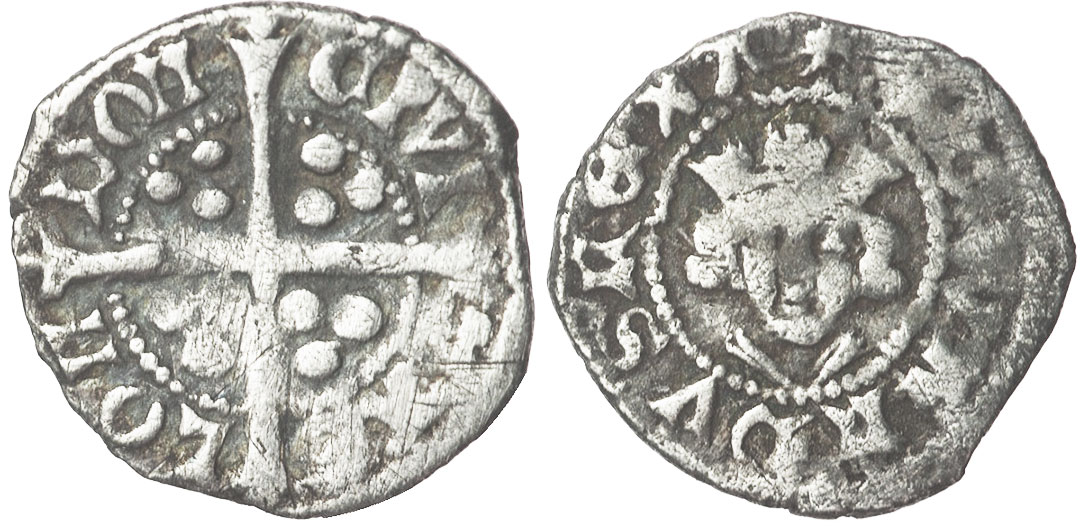
1 farthing of Edward I/II
In 1613, King James I (1603–1625) issued the first copper farthing (plated with tin to resemble a silver coin) with a diameter of 12.25 mm. Then pure copper coins with a diameter of 15 mm were issued.
King Charles II (1660–1685) began minting copper farthings with the image of Britannia on the reverse, weighed 5.2-6.4 g. and had a diameter of 22-23 mm.
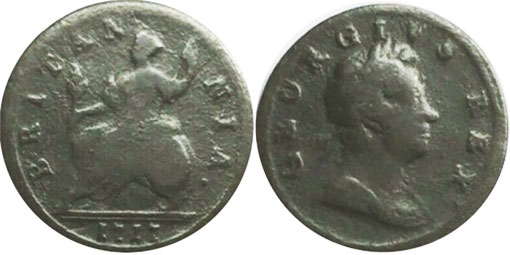 Farthing 1717 of George I
Farthing 1717 of George I
After a break in the late 18th and early 19th centuries due to a shortage of metal, the minting of farthings resumed in 1824, with Britannia on the reverse facing to the right rather than to the left, as before. The weight of the coin in 1821-1860 was 4.72 g, diameter - 22 mm.
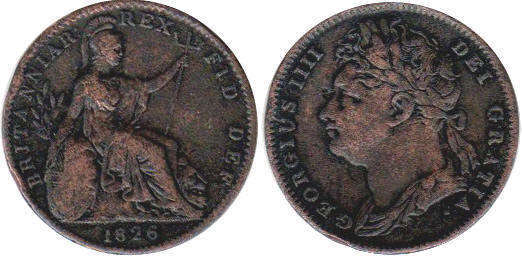
Farthing 1821-1826 of George III
Since 1860, farthings began to be produced in bronze. The new bronze coin weighed 2.83 g and had a diameter of 20 mm. These parameters were maintained until the minting of farthings ceased in 1956.
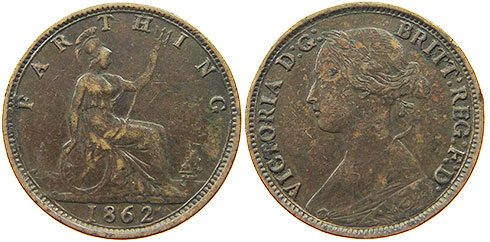
Farthing 1860-1873 of Victoria
From 1827 to 1913, fractions of the farthing were minted for circulation in the British colonies (Malta - 1/3 farthing and Ceylon - 1/2 and 1/4). Of these, only half a farthing was recognized as legal tender in Great Britain (since 1842), the rest were used exclusively outside its borders.
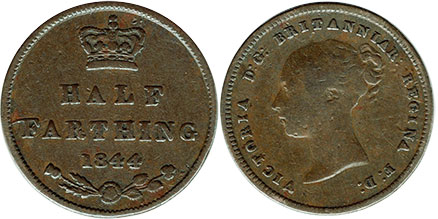
1/2 farthing 1839-1856 of Victoria
The 1/4 farthing is the smallest of all modern British-made coins, weighing 1.2 g and measuring 13.5 mm in diameter.
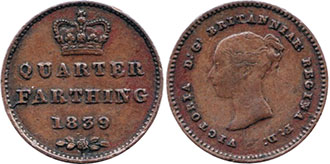
1/4 farthing 1839-1853 of Victoria
Under George VI (1936–1952), a small bird (wren) began to be depicted on the reverse of the farthing instead of a seated Britannia.
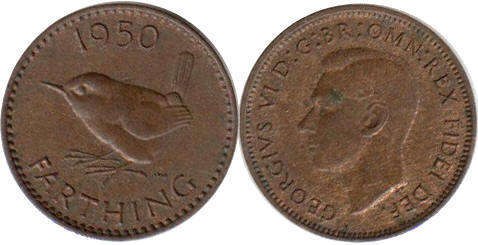
Farthing 1949-1952 of George VI
The minting of the farthing ceased in 1956. Legal circulation ceased on 31 December 1960.
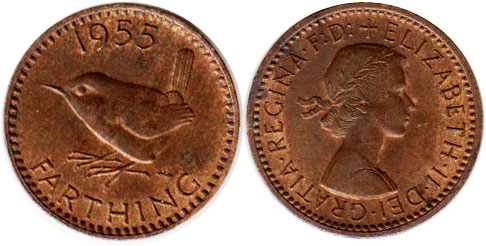
The last type of farthing (1954-1956)

